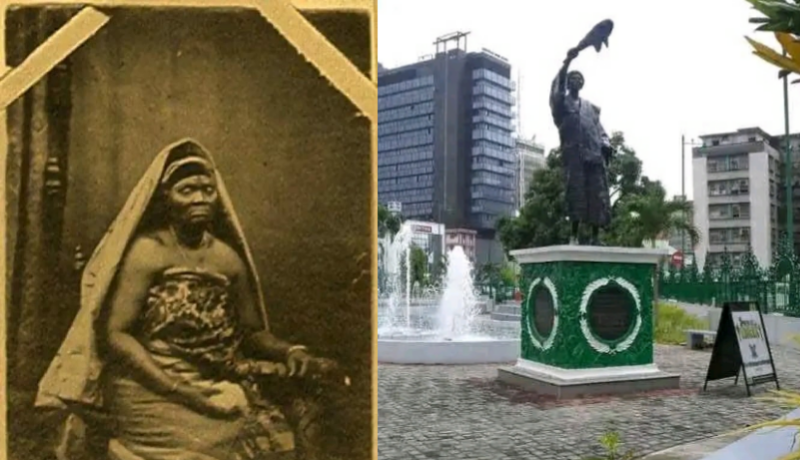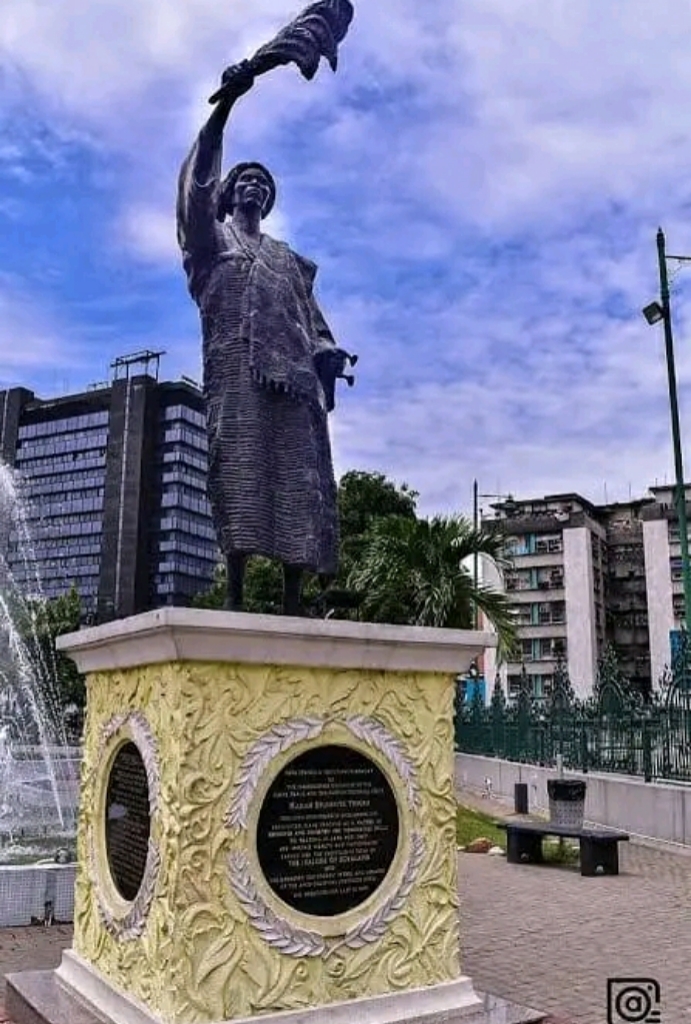



The woman Tinubu Square was named after.During the slave trade in Nigeria, she was one of the slave traders, she sold her own people to portuguese. but later stood against the slave trade and fought against colonial rule and slave trade EFUNPOROYE Osuntinubu Olumosa, later known as Madam Efunroye Tinubu, was an astute businesswoman, kingmaker and the first woman to kick against British rule in Nigeria during the colonial era. She was a major figure in Lagos and Abeokuta (Egba) politics.
Born in 1810 in Ojokodo, currently in Ogun State, Tinubu remarried to Oba Adele Ajosun in 1833 after the death of her first husband. She moved with the exiled Oba to Badagry, which was the traditional place of refuge for Lagos monarchs. At Badagry, she leveraged Adele’s connections and built a formidable business, dealing in tobacco, salt and slaves. Oba Adele was reinstated in 1835, but died two years after. Before his death, Tinubu had strengthened her trade with the expatriate community, the indigenous population of Lagos and Abeokuta, as well as other communities in Yoruba land.She later remarried Yesufu Bada, alias Obadina, who was Oba Oluwole’s war captain.
 Tinubu had a great influence in the palace and contributed in making Akitoye, her brother-in-law, king after Oba Oluwole.
In 1851, when Oba Akitoye was fully in charge of the throne, he granted Tinubu favourable commercial concessions, which made her to still trade in slaves for guns with Brazilians and Portuguese traders.
Tinubu had a great influence in the palace and contributed in making Akitoye, her brother-in-law, king after Oba Oluwole.
In 1851, when Oba Akitoye was fully in charge of the throne, he granted Tinubu favourable commercial concessions, which made her to still trade in slaves for guns with Brazilians and Portuguese traders.
The British Consul, Benjamin Campbell, felt threatened by Tinubus’s nationalistic acts and in 1856, instigated Dosunmu to expel Tinubu and her followers from Lagos to Abeokuta. In Abeokuta, Tinubu identified with the United Board Management Government and expanded her business activities to include a wide range of wares, such as arms and ammunition. Her influence began to be felt in Abeokuta politics, when she contributed to the successful defence of the Egba town during the Dahomey invasion of 1863. For her support, she was given the title of Iyalode (first lady) in 1864. The title placed her in a position of power, which enabled her to boldly participate in Egba affairs. Tinubu opposed colonial policies in Lagos. She was the first woman to play a proactive part in the resistance to British rule during the colonial period. She died in 1887. Tinubu Square on Lagos Island, a place previously known as Independence Square, is named after her. She was buried at Ojokodo Quarters in Abeokuta.